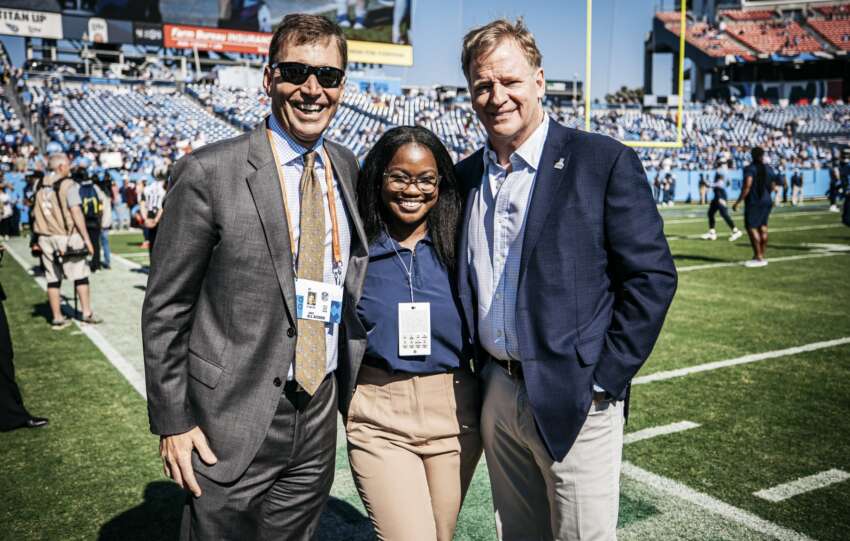Share This Article
I’ll never forget the day my high school biology teacher showed me a flier that read “Mini Med School – Neuro Night”. It was for an outreach event at the local college of medicine, and my teacher encouraged me to attend. I was curious about science, but not motivated academically. I’m a first-generation student whose family never pushed me one direction or the other; I was free to find my own path. All I knew was that I wanted to live unshackled from the financial restrictions that weighed heavily on my family. I decided to attend the event.
My mom dropped me off at the entrance where I was handed a lab coat. A smile crept hesitantly on my face. I walked down a corridor to the lecture hall to find a sea of students with black and brown faces dressed in white coats. My smile got wider. The prestige of the lecture hall enticed me and there was a palpable energy in the room.
“The human brain is complex and mysterious,” boomed the voice of a tall black man in a long white coat. I felt like I had entered an alternate universe. He spoke about consciousness and cognitive disease. I was captivated. At the intermission, I was offered to hold a real brain and ask questions. Nervously, I asked the most obvious question: “how does it work?” The tall man answered warmly, “that’s for you to figure out”. I seem to have taken that challenge quite literally. Later, I returned to my mom’s car, still wearing my white coat, and I told her that I wanted to be a brain doctor. Although I didn’t know it, my journey to MD/PhD had begun.
As I progressed through the premedical journey, I checked all the boxes to reach my goal. It felt prescriptive, and I realized the potential for burnout. To become competitive for medical school, I found a research opportunity working with an eccentric and kind neuroscientist who studied the sensory nervous system of scorpions. Entering the world of molecules and experimentation allowed me to tap into a creative sense that I didn’t know I had within me. Creativity was lacking in my premedical preparation. While I enjoyed working with patients in the clinic, it seemed we were merely putting band aids on deeper problems. I wanted to understand that depth, and the research lab offered a sandbox for discovery; it provided a playground to express myself artistically and apply scientific method to solve interesting problems.
I desired to combine my skills from the lab with my passion for patient care, but I had no idea how. I had never heard of MD/PhD, and I sought opportunities to learn what MD/PhD was all about. The more I learned, the more I understood that it was the best path for me. The physician-scientist philosophy resonated with my bicultural identity as a Moroccan-American, and the path offered free medical school tuition with compelling career flexibility.

Now, as a 5th year MD/PhD student, I recognize many underappreciated benefits and misconceptions about the MD/PhD path. I know how complicated the path is to navigate, especially for first-generation and underrepresented students. It’s my goal to demystify the process for the next generation. If you’re interested, I invite you to check out my MD/PhD blog, which highlights my experiences in detail. I’m looking to connect with curious and motivated students, and I encourage you to reach out to me.



